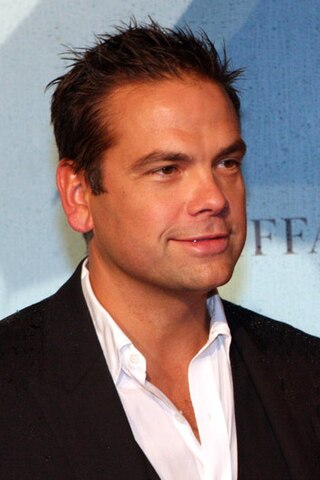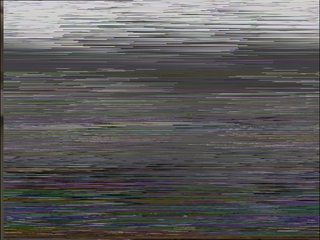Related Research Articles

Keith Rupert Murdoch is an Australian-born American business magnate, investor, and media proprietor. Through his company News Corp, he is the owner of hundreds of local, national, and international publishing outlets around the world, including in the UK, in Australia, in the US, book publisher HarperCollins, and the television broadcasting channels Sky News Australia and Fox News. He was also the owner of Sky, 21st Century Fox, and the now-defunct News of the World. With a net worth of US$21.7 billion as of 2 March 2022, Murdoch is the 31st richest person in the United States and the 71st richest in the world according to Forbes magazine. Due to his extensive wealth influence over media and politics, Murdoch has been described as an oligarch.

ITV Digital was a British digital terrestrial television broadcaster which launched a pay-TV service on the world's first digital terrestrial television network. Its main shareholders were Carlton Communications plc and Granada plc, owners of multiple licences of the ITV network. Starting as ONdigital in 1998, the service was rebranded as ITV Digital in July 2001.

A secure cryptoprocessor is a dedicated computer-on-a-chip or microprocessor for carrying out cryptographic operations, embedded in a packaging with multiple physical security measures, which give it a degree of tamper resistance. Unlike cryptographic processors that output decrypted data onto a bus in a secure environment, a secure cryptoprocessor does not output decrypted data or decrypted program instructions in an environment where security cannot always be maintained.

A smart card (SC), chip card, or integrated circuit card, is a card used to control access to a resource. It is typically a plastic credit card-sized card with an embedded integrated circuit (IC) chip. Many smart cards include a pattern of metal contacts to electrically connect to the internal chip. Others are contactless, and some are both. Smart cards can provide personal identification, authentication, data storage, and application processing. Applications include identification, financial, public transit, computer security, schools, and healthcare. Smart cards may provide strong security authentication for single sign-on (SSO) within organizations. Numerous nations have deployed smart cards throughout their populations.

The original incarnation of News Corporation was an American multinational mass media corporation controlled by media mogul Rupert Murdoch and headquartered at 1211 Avenue of the Americas in New York City. Prior to its split in 2013, it was the world's largest media company in terms of total assets and the world's fourth largest media group in terms of revenue. It had become a media powerhouse since its inception, dominating the news, television, film, and print industries.

News Corp UK & Ireland Limited is a British newspaper publisher, and a wholly owned subsidiary of the American mass media conglomerate News Corp. It is the current publisher of The Times, The Sunday Times, and The Sun newspapers; its former publications include the Today, News of the World, and The London Paper newspapers. It was established in February 1981 under the name News International plc. In June 2002, the company name was changed to News International Limited, and on 31 May 2011, to NI Group Limited, and on 26 June 2013 to News UK.

Infineon Technologies AG is Germany's largest semiconductor manufacturer. The company was spun-off from Siemens AG in 1999. Infineon has about 58,600 employees in 2023 and is one of the ten largest semiconductor manufacturers worldwide. In 2023 the company achieved sales of €16.309 billion.
Cisco Videoscape was a majority owned subsidiary of News Corp, which develops software for the pay TV industry. NDS Group was established in 1988 as an Israeli start up company. It was acquired by Cisco in 2012 before being sold back to the private equity company Permira in 2018 for US$1 billion. The company is currently headquartered in Staines, United Kingdom.

MIFARE is a series of integrated circuit (IC) chips used in contactless smart cards and proximity cards.
Pirate decryption is the decryption, or decoding, of pay TV or pay radio signals without permission from the original broadcaster. The term "pirate" is used in the sense of copyright infringement. The MPAA and other groups which lobby in favour of intellectual property regulations have labelled such decryption as "signal theft" and object to it, arguing that losing out on a potential chance to profit from a consumer's subscription fees counts as a loss of actual profit.

Lachlan Keith Murdoch is a British-born Australian-American businessman and mass media heir. He is the son of the media tycoon Rupert Murdoch. He is the executive chairman of Nova Entertainment, chairman of News Corp, executive chairman and CEO of Fox Corporation. In 2023, he was listed 33rd on the list of Australia's wealthiest people, with his wealth estimated at A$3.35 billion.
News Corp Australia is an Australian media conglomerate and wholly owned subsidiary of the American News Corp.
VideoGuard, produced by NDS, is a digital encryption system for use with conditional access television broadcasting. It is used on digital satellite television systems – some of which are operated by News Corporation, which owned about half (49%) of NDS until its sale to Cisco in 2012. Since 2018 VideoGuard is improved and maintained by Synamedia. Its two most widely used implementations are Sky in the United Kingdom and Ireland and DirecTV in the United States, the former of which launched the digital version of the system in 1998.
Television encryption, often referred to as scrambling, is encryption used to control access to pay television services, usually cable, satellite, or Internet Protocol television (IPTV) services.

VideoCrypt is a cryptographic, smartcard-based conditional access television encryption system that scrambles analogue pay-TV signals. It was introduced in 1989 by News Datacom and was used initially by Sky TV and subsequently by several other broadcasters on SES' Astra satellites at 19.2° east.

A Trusted Platform Module (TPM) is a secure cryptoprocessor that implements the ISO/IEC 11889 standard. Common uses are verifying that the boot process starts from a trusted combination of hardware and software and storing disk encryption keys.
MediaGuard is a conditional access system for digital television developed by SECA, a subsidiary of Canal+ Group, sold to Thomson. Then Canal+ Technologies SA was broken in two pieces by Thomson in 2003, the MediaGuard sold to Nagra France and the MediaHighway to NDS France.
In mid-2011, out of a series of investigations following up the News of the World royal phone hacking scandal of 2005–2007, a series of related scandals developed surrounding other News Corporation properties—where initially the scandal appeared contained to a single journalist at the News of the World, investigations eventually revealed a much wider pattern of wrongdoing. This led to the closure of the News of the World on 10 July 2011, an apology by Rupert Murdoch in an advertisement in most British national newspapers, and the withdrawing of News Corporation's bid to take over the majority of BSkyB shares it did not own.
A hardware backdoor is a backdoor implemented within the physical components of a computer system, also known as its hardware. They can be created by introducing malicious code to a component's firmware, or even during the manufacturing process of a integrated circuit, known as a hardware trojan. Often, they are used to undermine security in smartcards and cryptoprocessors, unless investment is made in anti-backdoor design methods. They have also been considered for car hacking.
The ROCA vulnerability is a cryptographic weakness that allows the private key of a key pair to be recovered from the public key in keys generated by devices with the vulnerability. "ROCA" is an acronym for "Return of Coppersmith's attack". The vulnerability has been given the identifier CVE-2017-15361.
References
- ↑ Chenoweth N. Rupert Murdoch: The Untold Story of the World's Greatest Media Wizard. Crown Business 12 November 2002. p. 353. ISBN 978-0609610381.
- 1 2 3 4 5 6 Zetter K. From the Eye of a Legal Storm, Murdoch's Satellite-TV Hacker Tells All. Wired.com San Diego. 30 May 2008. Accessed 30 September 2015.
- 1 2 Everett D. What the silicon manufacturer has put together let no man put asunder. Smartcard.co.uk March 2010. Accessed 29 September 2015.
- ↑ Tarnovsky, Christopher (2019-06-14). "Sophisticated million dollar hack to discover weaknesses in a series of smartcards affecting millions". Hardwear.io. Retrieved 2020-10-16.
- ↑ Talbot D. “Tamper-Proof” Chips, with Some Work, Might Give Up Their Secrets. MIT Technology Review 11 September 2013. Accessed 30 September 2015.
- ↑ Chenoweth N. Cash in News budget for police informants. The Australian Financial Review. 4 April 2012. Accessed 26 April 2012.
- ↑ Gardner E. Rupert Murdoch's $1 Billion Hacking Scandal You Haven't Heard About. Hollywood Reporter. 18 July 2011. Accessed 29 September 2015.
- ↑ Chenoweth N. Murdoch's inside job. The Australian Financial Review. 31 March 2012. Accessed 26 April 2012.
- ↑ Vivendi settles row with NDS. The Guardian 2 May 2003. Accessed 26 April 2012.
- ↑ Van Tilborg H. (ed.) Christopher Tarnovsky. Encyclopedia of Cryptography and Security, Springer, 10 August 2005. ISBN 978-0387234731 Accessed 26 April 2012.
- ↑ Stevens T. Christopher Tarnovsky hacks Infineon's 'unhackable' chip, we prepare for false-advertising litigation. Engadget.com 12 February 2010.